Conferences / Lectures / Talks
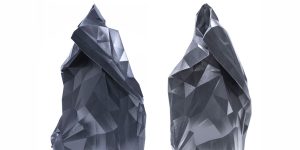
Uncertainty with AI-terity (Music Performance)
Koray Tahiroğlu (FI/TR)
The composition Uncertainty keeps the musician in a hesitant state of performance, providing a non-rigid but identifiable musical events, followed by ever shifting new sounds. Uncertainty is a composition written for the AI- terity instrument that comprises computational features of a particular artificial intelligence (AI) model to generate relevant audio samples for real- time audio synthesis. The unusual behaviour of the Al-terity puts the performer in an uncertain state during performance. Together with being able to move through timbre-changes in sonic space, the emergence of new sounds allows the musician to explore a whole new range of musical possibilities. Composition turns into a continuous state of playing, reformulating an idiomatic relationship with the Al-terity and opening up a fresh variety of musical demands.
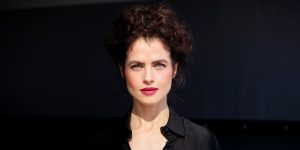
Key Note: Neri Oxman
Als multidisziplinäre Designerin gründete Oxman 2010 die Mediated Matter Group am Massachusetts Institute of Technology, wo sie das Gebiet der Materialökologie etablierte. Sie verbindet Technologie und Biologie miteinander, um Entwürfe zu liefern, die den Prinzipien der ökologischen Nachhaltigkeit entsprechen. Seit 2017 ist Oxman ordentliche Professorin am MIT.
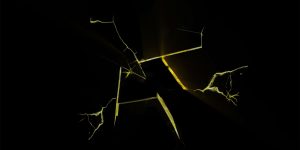
Art in Flux Live: Autonomy @ Flux' channel
The Art in Flux founders introduce the ethos of the organisation and their own practices through live video tours.
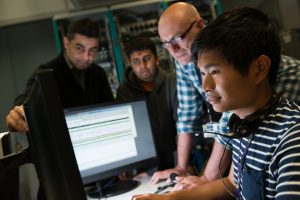
STEAM Innovation and Curriculum
Laura Veart (UK), Tom Cahill-Jones (UK)
Die Konferenz präsentiert inspirierende Beispiele für integrative und interdisziplinäre Bildung und erforscht, wie diese weiter angepasst und in anderen Bildungs- und Kulturkontexten umgesetzt werden könnten.

Boost of the digital economy in times of crisis
Jan Trionow (AT)
Jan Trionow, CEO von Drei Österreich, wagt einen optimistischen Ausblick in die Zukunft und zeigt auf, wie 5G Europa vernetzen wird. Er kommentiert auch die Chance, die die aktuelle Krise darstellt und wie sie als ultimativer Startpunkt für die digitale Wirtschaft genutzt werden kann.
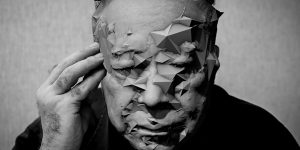
Artist Talk: Hsin-Chien Huang (TW)
Artist Talk by Hsin-Chien Huang (TW) about his project 'Bodyless' which got the Honorary Mention in the Computer Animation category of the Prix Ars Electronica 2020

Demystifying AI with Music
Roberto Viola (IT), Elaine Chew (US/UK), Patrick van der Smagt (DE), Matthias Röder (DE)
Welche Bedeutung könnte KI in der Musik haben? Kann sich KI von Musik inspirieren lassen? Das Gespräch wird sich mit diesen Fragen auch im Hinblick auf eine europäische Vision der "vertrauenswürdigen KI" befassen.

Artist Talk: Joy Buolamwini (US)
Artist Talk by Joy Buolamwini (US) about the project 'Algorithmic Justice League (AJL) - AI, Ain't I A Woman?' which won the Award of Distinction in the Digital Communities category of the Prix Ars Electronica 2020.

Artist Talk: Toby Auberg (SE)
Artist Talk by Toby Auberg (SE) about his project 'Pile' which got the Honorary Mention in the Computer Animation category of the Prix Ars Electronica 2020.
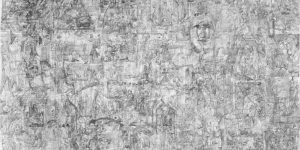
Creative Question Challenge: Quietly Subversive
Ciprian Mureșan (RO), Sanneke Stigter (NL), Corina Bucea (RO)
"Lasst uns beenden, was wir begonnen haben." Auf diese Weise stellt die UNO ihr erstes Ziel für nachhaltige Entwicklung vor - das Ende der Armut in allen Formen und Dimensionen bis 2030. Die 17 Ziele der Nachhaltigen Entwicklung und ihre 169 Teilziele wurden als ein ausuferndes, missverständliches Durcheinander großer Absichten beschrieben. Allein der Titel der Entwicklungsagenda - "Unsere Welt umgestalten" - verströmt utopische Ambitionen. Er wurde 2015 von 193 Nationen angenommen. Fünf Jahre später und mit zehn verbleibenden Jahren: Wie wird sich unsere Welt verändern?
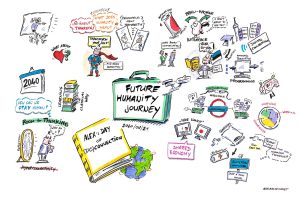
Future Humanity Journey
Ein Tag im Jahr 2040: Wie würde unser Tag in 20 Jahren aussehen? Future Humanity Journey ist ein experimenteller Workshop.
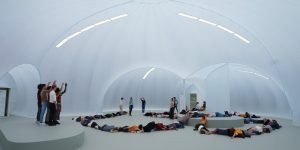
Creative Question Challenge: Embodied perception and life as movement
Alexandra Pirici (RO), Paco Calvo (ES), Corina Bucea (RO)
"Lasst uns beenden, was wir begonnen haben." Auf diese Weise stellt die UNO ihr erstes Ziel für nachhaltige Entwicklung vor - das Ende der Armut in allen Formen und Dimensionen bis 2030. Die 17 Ziele der Nachhaltigen Entwicklung und ihre 169 Teilziele wurden als ein ausuferndes, missverständliches Durcheinander großer Absichten beschrieben. Allein der Titel der Entwicklungsagenda - "Unsere Welt umgestalten" - verströmt utopische Ambitionen. Er wurde 2015 von 193 Nationen angenommen. Fünf Jahre später und mit zehn verbleibenden Jahren: Wie wird sich unsere Welt verändern?
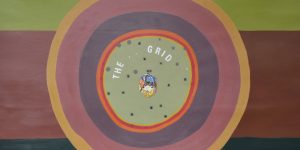
Community Creates Mobility: Participatory Speculative Critical Design beyond dream-making for the City.
Eveline Wandl-Vogt, Niki Ernst, Claudia Falkinger, Peter Zehetbauer, Wolfgang Preisinger, Elisabeth Füssl, Penesta Dika, Aleyda Rocha Sepulveda; lightning talk: Jeffrey Schnapp
Co-Envisioning Mobility Infrastructures - The challenges facing cities around the globe are complex and multidisciplinary by nature. Attempting to solve them in conventional linear ways is insufficient for addressing these manifold human-environment relationships that are at the heart of these challenges. Alternative approaches are necessary.
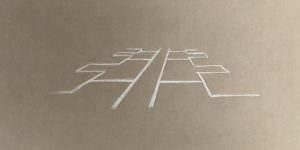
Affordances of spaces
Elena Cologni
Accelerating Knowledge for the SDGs: Life streamed session - The work developed from a two-year long investigation into ‘architectures of difference’, is based on a postcard in sculptor Barbara Hepworth’s collection (circa 1952), in a note she refers to this in terms of the space between people: it’s relational and social aspects. The piece also evolved from considering the punctuations found in our cities’ grounds, and how these contribute to developing a sense of attachment and belonging, which is at the basis of wellbeing (eg. Lived Dialectics, 2016, MuseumsQuartier, Vienna; Seeds of Attachment, 2016/18, New Hall Art Collection, Cambridge).
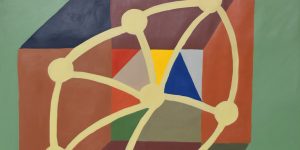
museum of knowledge science
Eveline Wandl-Vogt, Atiq Hashmi, Andreas Brandner, Louise Deininger
Virtual co-design session - Knowledge is at the heart of sustainable development. The achievement of the Sustainable Development Goals requires therefore effective knowledge management. However, knowledge needs to be understood in regional, societal, historic and cultural context. Art and culture are essential to the understanding of knowledge, specifically when knowledge - and its various aspects and processes - is reflected as a subject of art. Beyond reflecting knowledge, art is also a medium of knowledge, like articles or books.
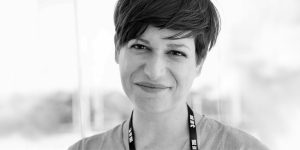
Key Note: Lorena Jaume Palasì
Gründerin von The Ethical Tech Society. Sie forscht zur Ethik der Digitalisierung und Automatisierung und in diesem Zusammenhang mit rechtsphilosophischen Fragen. 2017 Berufung von der Regierung Spaniens in dem Weisenrat zu Künstlicher Intelligenz. Ehem. Mitglied der High Level Expert Group on Artificial Intelligence der EU Kommission. 2018 Theodor Heuss Medaille „für ihren Beitrag zu einer differenzierten Betrachtung von Algorithmen und deren Wirkmechanismen“ mit der Initiative AlgorithmWatch.
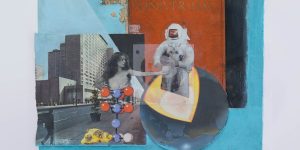
Algorithm Inventarium: methoda-thon
Matthew Battles, Max Haarich, Aleyda Rocha Sepulveda, Eveline Wandl-Vogt
Towards Inclusive, Sustainable Futures - The experimental "methodathon" is part of a series of “algorithm inventarium sprints” related to the project Algorithm Inventarium (AI+): diverse co-creation interventions combining action research approaches for accelerating the collaborative auditing of algorithms (e.g. by applying gamification techniques for data awareness, or auditing through interfaces). The aim of this session in connection with the ars electronica festival community is to identify, co-create and/or discuss specific methods, protocols and experiments for participatory research in the spirit of citizen science and community-based research in Vienna.
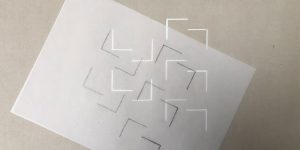
Algorithm Inventarium: The Greater Good Ethics Canvas
Eveline Wandl-Vogt, Henry Dobson, Max Haarich
Towards Responsible, Humane Technologies - In this interaction we are introducing the “Greater Good Ethics Canvas” to be used for the development of Humanity Centered Technology.
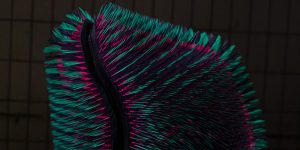
AILab
beim Ars Electronica Festival 2020
The European ARTificial Intelligence Lab emerged from the European Digital Art and Science Network, a creative collaboration between scientific institutions, Ars Electronica and cultural partners throughout Europe that unites science and digital art. The European ARTificial Intelligence Lab takes up this theme and addresses the visions, expectations and fears that we associate with artificial intelligence.
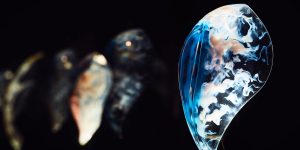
STARTS Day
Die Initiative Science+Technology+Arts = STARTS ist ein Programm der Europäischen Kommission zur Förderung von Synergien zwischen Kunst und Technologie, um die Innovationsindustrie und die Gesellschaft zu stärken. STARTS fördert die Einbeziehung von KünstlerInnen in Forschungs- und Innovationsprojekte in ganz Europa.


